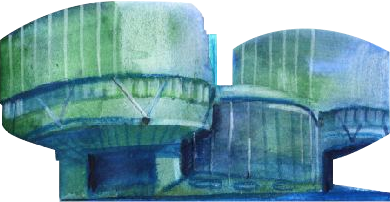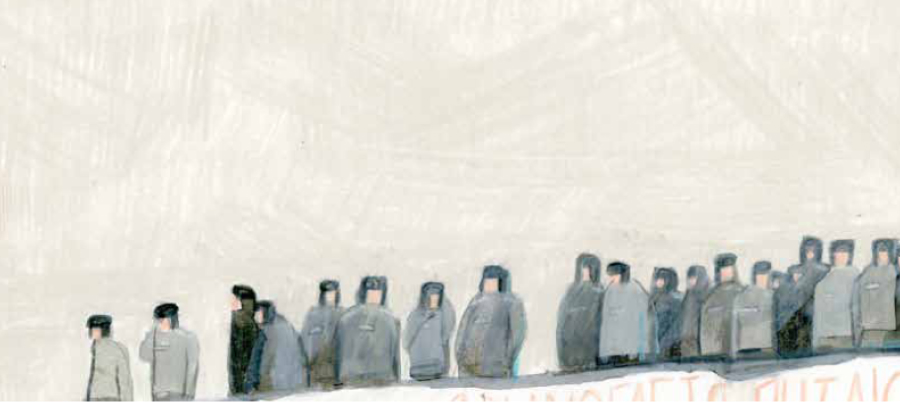About us
The European Prison Litigation Network was founded in 2013 by prisoners’ rights defenders and law practitioners to offer a voice to prisoners and civil society organisations that defend their rights in European bodies that set-up penitentiary and penal policies.
EPLN is a place where former prisoners, civil society activists, academics, lawyers and prison doctors can discuss, learn from each other and draw strength to continue their struggles for the judicial protection of prisoners’ rights.
Our mission
The European Prison Litigation Network was founded by prisoners, law practitioners, researchers and civil society activists to reinforce prisoners’ judicial protection across the European continent.
We affirm the critical role of prisoners and their defenders in upholding European and international human rights law and standards in detention and promote prisoners’ greater involvement in elaborating public policies and research that concern them.
We comparatively analyse prisons’ systemic problems and research the determinants and obstacles to effectively access rights in detention.
We also scrutinise the evolution of criminal policies, in particular the length of sentences and sociodemographic categories of incarcerated people, in order to address fundamental rights in detention through the inextricable question of the social functions of prison.
Through this analytical work, we develop strategic litigation and advocacy to inform and influence European normative developments in prison issues and enhance the protection of detainees’ fundamental rights.
We federate around 30 national NGOs and bar associations from 20 European countries and cooperate with 6 European universities.

History timeline
Prisoners, law practitioners, researchers and civil society activists found the European Prison Litigation Network
In the context of the Brussels conference on the future of the European Court of Human Rights, EPLN along with 44 NGOs call on Council of Europe Member States to address structural problems in prisons
EPLN organises the first conference on prisoners’ rights at the European Court of Human Rights, “The Protection of Prisoners’ Rights in Europe”. Proceedings were published in 2017 in La Revue des Droits de l’Homme, no. 14
EPLN is granted participatory status with the Council of Europe
EPLN organises a second conference on prisoners’ rights at the European Court of Human Rights, chaired by the Court’s President, G. Raimondi, “Overcoming obstacles to the access of detained persons to rights and the judge: European perspectives”.
Building on research and advocacy initiatives on the procedural rights of prisoners by EPLN and its partners, the Council of Bars and Law Societies of Europe (CCBE) dedicates in 2019 the European Lawyers Day to the issue of prisoners’ access to a lawyer and to legal aid. On this occasion, EPLN members have mobilised to organise events in Berlin, Rome and Brussels
EPLN initiates a joint appeal with 60 European NGOs calling on international organisations to take urgent action in response to the Covid-19 outbreak in prisons
In response to Russia’s war of aggression against Ukraine, EPLN increases support to its Ukrainian partners and starts documenting war crimes on Ukrainian prisoners for the initiation of a judicial response commensurate with the crimes committed
EPLN celebrates its ten years of collective action of former prisoners, associations, academics, lawyers and prison doctors for the protection of fundamental rights of prisoners.
How we work



By mobilising knowledge and field expertise from former detainees, NGOs, academics, lawyers and prison doctors, EPLN initiates and coordinates collective actions on crucial issues from the perspective of prisoners’ fundamental rights to impact the course of prison and penal policies at domestic and European level.
We analyse and follow up on main prison and penal policy developments at European and international levels and strive to enhance civil society participation in these processes.
Together with our members and partners, we conduct strategic litigation before domestic, European and international courts to defend and advance prisoners’ rights in crucial areas.
We also support lawyers, civil society organisations and prisoners who litigate for prisoners’ rights by providing legal resources, carrying out capacity-building activities and cooperating with bar associations.
Thanks to continuous cooperation with research centers and universities, we produce and circulate analysis and knowledge on European and national prison law, and research the determinants of and obstacles to effective access to rights in detention.
This enables us to keep a critical eye on prison reforms, which are sometimes devoid of any real effect, and perpetuate the arbitrary nature of prison in a more acceptable guise.
We also scrutinise the evolution of criminal policies, in particular the length of sentences and sociodemographic categories of incarcerated people, in order to address fundamental rights in detention through the inextricable question of the social functions of prison.

Annual reports

Special projects

Justice for Kopeysk prisoners
Read moreIn 2012 hundreds of prisoners from the penitentiary colony No 6 of Kopeysk, in Russia have protested against torture and racketeering. In 2018 seventeen of them were convicted to sentences up to 5 years for “mass riots”. EPLN observed their trial for 3 years and reported on the reprisals against the protesting prisoners and about the significance of the case in the wider context of the Russian penitentiary system.

20 years of European prison law
Read moreOn the anniversary of the ECtHR landmark judgment Kudla vs. Poland, EPLN gathered the views and analysis of the protagonists of the case, people in prison, activists, lawyers, prison staff, judges and researchers on the context and stakes of the judgment for the recognition of prisoners’ rights.
